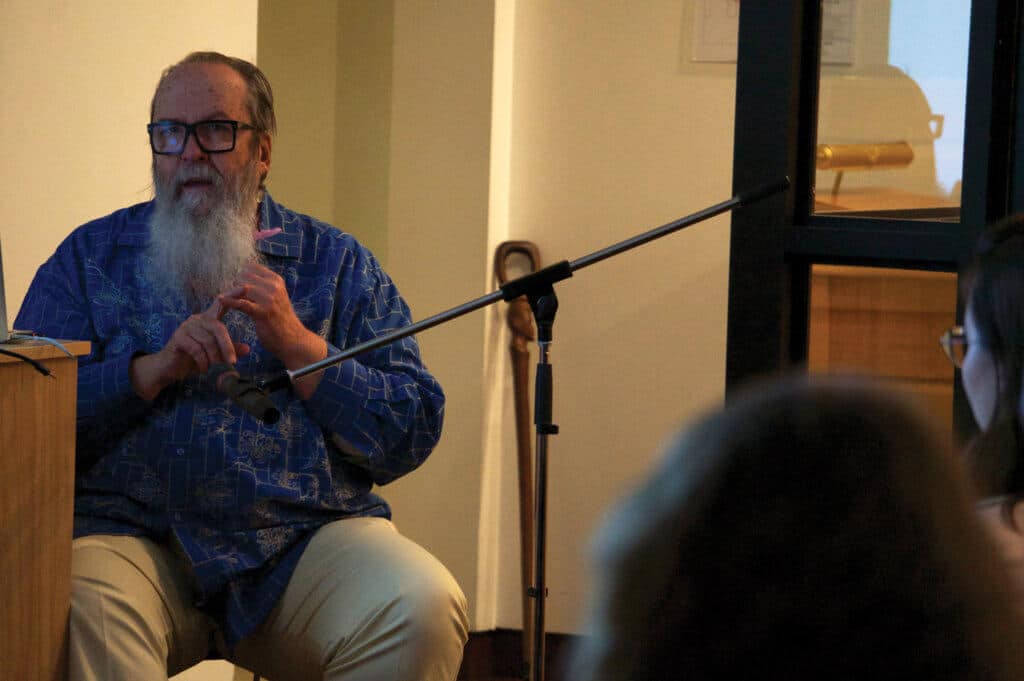Artist talk prompts discussion about queerness and body image at Owens Art Gallery

Prolific Canadian artist Evergon discussed themes of queerness, body image, gender and aging in his career of photography at the Owens Art Gallery last week. An engaging speaker, Evergon studied visual arts at Mount Allison before pursuing graduate studies at Rochester Institute of Technology and has since had a successful career in photography.
Although Evergon has used different cameras, a great deal of the work he showed to the crowd was taken with polaroids. “I became a Polaroid baby,” he explained. “I was really hooked on Polaroid. I loved the smell, I loved the addiction of instant imaging. It was just something about it that was so akin to painting or drawing.” He went on to describe his process as “building images.” Several of his projects have involved making small changes to the set up or using other tools to edit the pictures after they’ve been developed.
Evergon recounted the length of his career, starting with small size polaroids and his eventual use of a larger stationary instant camera. “It’s one of the things that gives the work power,” he said on his choice to display many of his works as life-size. “When you’ve got something life-size, people can’t back up. There’s something about making things life-size that makes it confrontational.”
His career has been marked by close collaborations with other artists as well as with the models in his work. Evergon explained how his photography is an exchange between himself and others, where he and his models work just as hard for the image they’re creating. “Everyone [would] play in front of the cameras and so it’s always been collaborative,” said Evergon. “I’ve always thought of the camera as the seducer [and] I couldn’t make those [images] without my friends.”
Among a room full of art students sketching and taking notes in their sketchbooks, Izzy Francolini, a recently graduated fine arts student, appreciated the opportunity to hear from a queer artist. “I really liked what he said at the end about how he was not going to allow the queerness or the gayness to be erased from history. I think that’s really powerful,” Francolini said. “Just very personal, very interesting, very different from some of the stuff you see.”
[su_carousel source=”media: 9786,9785,9787″ target=”blank” width=”1500″ height=”540″ responsive=”yes” title=”no” scroll = “0”]
Chris Boyne, a photography lecturer in the arts department, has known Evergon for over a decade and assisted in setting up the talk at the Owens. “[Evergon] is always a generous person, especially when it comes to promoting and championing the work of young emerging artists and students,” Boyne explained. “I believe [his talk] was invaluable to the students.”





